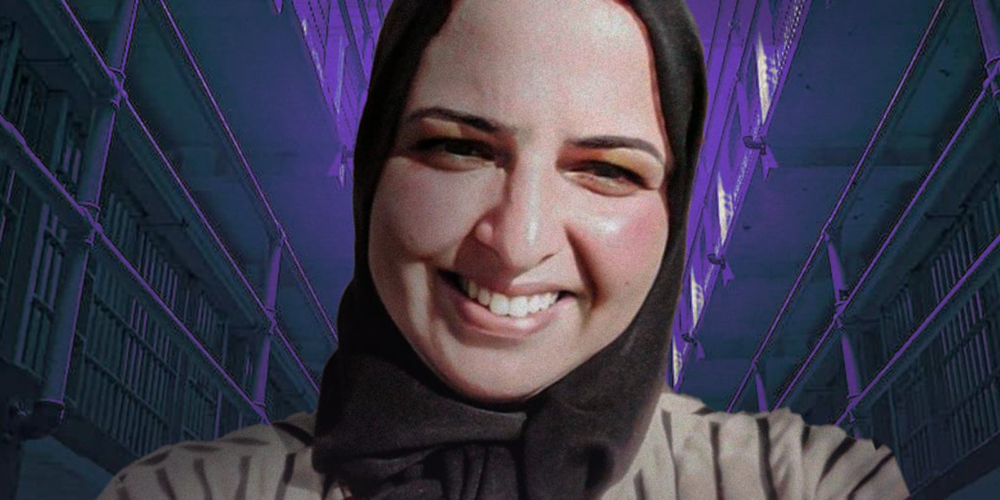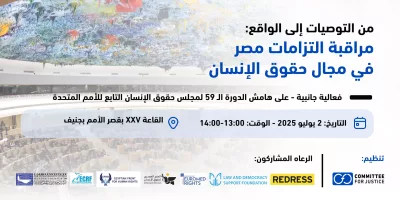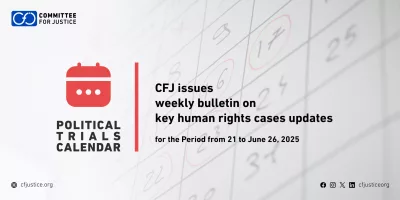Press Release
The Committee for Justice (CFJ) has documented the issuance of a 4-year prison sentence (in absentia) against Tunisian human rights defender Amal Houli. She was accused of collecting endorsements for the upcoming presidential candidate, Karim Al-Gharbi, and offering financial or in-kind gifts to influence voters, according to Article 161 (new) of the Basic Law No. 16 of 2014, dated May 26, 2014, concerning elections and referendums, as amended by Decree No. 55 of 2022, dated September 15, 2022.
– Raids and repeated violations:
Tunisian authorities raided Houli’s house in Jendouba province on the night of Saturday, July 27, without presenting a judicial warrant for the raid or arrest. They took her father and her five-year-old daughter for questioning after failing to find her, interrogating them until the next morning about her whereabouts.
Previously, Houli had been summoned by Tunisian authorities and questioned about her relationship with the presidential candidate Karim Al-Gharbi. She denied any connection to him beyond past assistance in securing cancer treatment for her mother, asserting that she had no involvement in collecting endorsements. She emphasized that she had left Jendouba well before the endorsement process began.
Houli also reported that security forces had confiscated documents containing personal data of citizens who had previously participated with her in a civil society project she managed, as part of her civil activities and presidency of an association since 2020. After failing to find her at her home, authorities declared her as “fugitive.”
– In absentia ruling and calls for its reversal:
On July 31, the Jendouba Court of First Instance issued an initial ruling, sentencing Houli to four years in prison with immediate enforcement.
CFJ rejects the verdict, calling for its suspension, arguing that it violates her right to freedom of expression. Additionally, CFJ highlighted several procedural and legal violations in the case. Houli’s lawyer also emphasized the absence of the elements required for the crime under Article 161 (new) of the electoral law, on which the case was based, rendering the trial lacking in fair trial standards.






